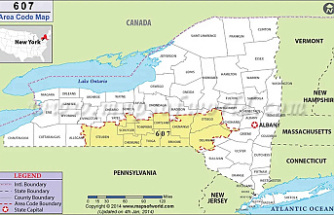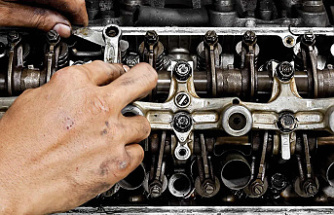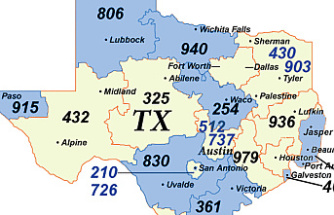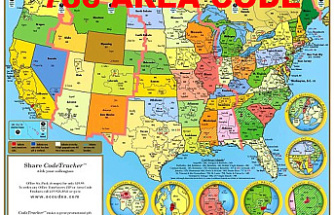Since 2013, 19 states have raised gas taxes to pay for roads, and as many as 18 states are considering doing so this year.
But despite widespread agreement that Colorado needs to devote more money to roads, don't expect the Centennial State to join them. In fact, Republicans here have proposed doing the opposite — asking for cuts to what they call a "dying tax."
"This is highly unusual, what's being talked about in Colorado right now," said Carl Davis, research director with the Institute on Taxation and Economic Policy.
And it can largely be explained by one thing: TABOR.
Because of Colorado's Taxpayer's Bill of Rights, any agreement lawmakers reach to raise taxes to pay for roads will have to go to the ballot box for approval. And gas taxes? They aren't as popular with the voting public as they are with state legislatures.
"We've done quite a bit of polling over the last two years and have found that the prospect of voters increasing their own gas tax is very slim," said Tony Milo, executive director for the Colorado Contractors Association (CCA), which for years has lobbied for a tax increase for roads. "They're actually much more open to some other types of taxes than they are to gas taxes."
That, more than any policy arguments, is why sales taxes appear to have risen to the top of the heap in early discussions between the Democrat-controlled House and the Republican-led Senate. According to the CCA, a small sales tax hike simply polls better.
But the gas tax will still play an important role in the funding debate to come. Here's a primer:
Why tax gas?
The basic case for gas taxes is simple: They force the people who use the roads the most to pay more for their upkeep.
But rising fuel efficiency, coupled with inflation, has steadily eroded what Colorado's 22-cent-per-gallon tax is worth. Adjusted for inflation, Colorado receives 30 percent less money from the gas tax than it did in 2000, according to an Inside Energy analysis. That's a significant drop for a tax that makes up more than a third of the state's transportation funding.
In 1991, the last time Colorado raised its gas tax, Colorado spent $125.70 per person on transportation, according to the Colorado Department of Transportation. By 2015, İmajbet Colorado had added 2.1 million people, who are driving an additional 21.6 billion miles on the roads than in 1991 — but spending levels had dwindled to $68.94 per person.
The 18.4-cent-per-gallon federal gas tax is similar: It was last raised in 1993.
The diminishing returns have Senate Majority Leader Chris Holbert, R-Parker, calling for its outright repeal, saying that state should swap it out for a more sustainable source of revenue.
“It's really a stagnant, or a long-term dying revenue source," Holbert told The Post in an interview last month. "With efficiencies in vehicles and more hybrids and electrics hitting the roads, that isn't a long-term solution for transportation funding.”
Then why are other states doubling down?
Some tax policy experts counter that the tax isn't dying unless a state lets it.
"I think some of those concerns, they're rooted in reality, but they're overblown," Davis said. "If we eventually get to a point when a significant share of drivers are driving fully electric vehicles, then of course the gas tax isn't going to make sense anymore … but we're just not there yet."
Twenty states now have variable-rate gas taxes that try to adjust for issues such as inflation, fuel efficiency, gas prices or some combination of the above, according to the National Conference of State Legislatures. And unlike most taxes, the debate isn't necessarily a partisan one.
Red states such as Utah, Georgia and Wyoming all have increased gas taxes in recent years, and conservative Indiana is among those considering a gas tax hike in 2017.
So why not Colorado?
"It's not just the matter of gas taxes. It's a matter of taxes, period," says John Straayer, a political science professor at Colorado State University who specializes in legislative politics.
“I'd characterize it as the fifth book in the New Testament," Straayer added. "Matthew, Mark, Luke, John and TABOR."
Since the Taxpayer's Bill of Rights was adopted in 1992, voters in Colorado have authorized only one tax hike put on the ballot by lawmakers: the 2013 measure taxing recreational marijuana. Four citizen-led initiatives to increases taxes — including one for tobacco products in 2016 — failed in recent years.
So the politics involved in putting a measure on the ballot in the first place — coupled with the likelihood that it could fail, given voters' typically anti-tax disposition — have made lawmakers and advocacy groups cautious about what they put forward.
Meanwhile, small government groups and many Republicans question the need for new revenue at all. If transportation's a priority, they argue, it can be funded with the money the state already brings in.
"At this point, we have enough revenue to deal with this," said Michael Fields, the state director for Americans for Prosperity.
To be clear, not everyone is ruling out gas taxes. Democrats, including Gov. John Hickenlooper, are quick to point to the state's Republican-led neighbor, Utah, as a model. In 2015, Utah lawmakers voted to bump their 24.5-cent-per-gallon gas tax up by 5 cents. That's 33 percent higher than what Colorado charges.
But the comparison is imperfect: The Utah legislature didn't need the approval of voters.
Rep. Diane Mitsch Busch, the Democrat in charge of the House transportation committee, acknowledges that no one has ever successfully raised the gas tax at the ballot box. But, she adds, "nobody's ever tried it," either.
Our editors found this article on this site using Google and regenerated it for our readers.












